Your kitchen countertop is a useful workspace for preparing meals, but it is so convenient and expansive that we can be tempted to leave things on it that we shouldn’t. Because it’s a food-preparation area, some objects should always be kept elsewhere. Here are 18 things you should avoid leaving out on your countertop for hygiene reasons.
Dirty Dishes
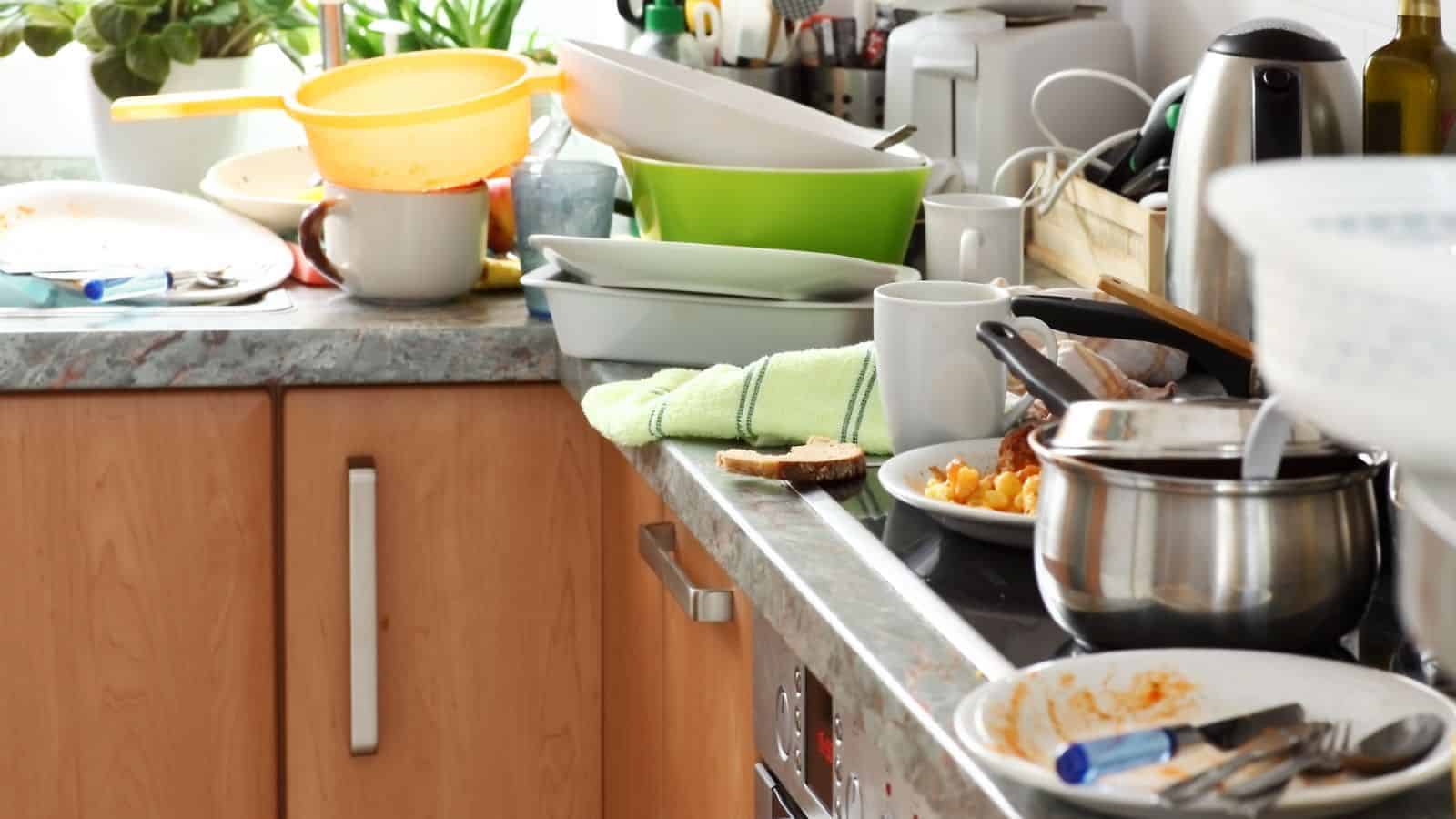
It’s tempting to leave dirty dishes piled up on your countertop, but you shouldn’t leave them there for long. They not only look bad, but they also attract bacteria, mold, and pests like flies, ants, and roaches. Always scrape food waste off and rinse them before washing or placing them in the dishwasher. This will help ensure your kitchen counter stays as hygienic as possible.
Raw Meat, Poultry, and Seafood

Raw animal products can harbor harmful bacteria like Salmonella, E. coli, and Campylobacter, so they require special handling. Always keep them separate, fully wrapped and covered, in the bottom of your refrigerator or freezer. The CDC recommends washing any surfaces that come into contact with such products (including counters and chopping boards) immediately with hot water and soap.
Perishable Items
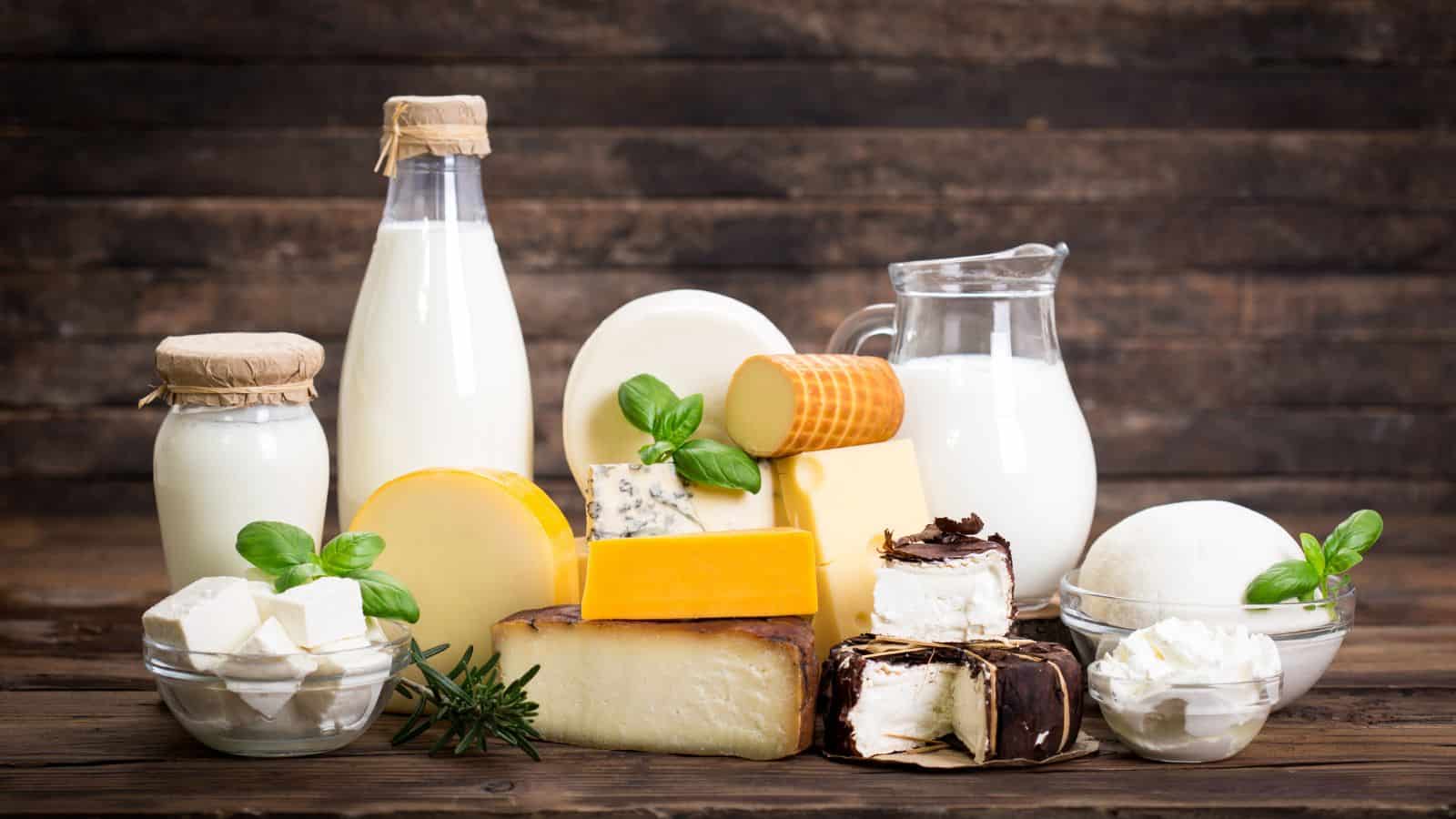
Foods such as dairy products, cooked leftovers, and fruits/vegetables that have been cut will spoil if left at room temperature for extended periods, especially in summer or if you live in a warmer climate. Warmth accelerates bacterial growth, which can lead to foodborne illnesses if you don’t adequately cook the food afterward. Always store these items in the fridge and wipe down any surfaces they touch.
Open Containers
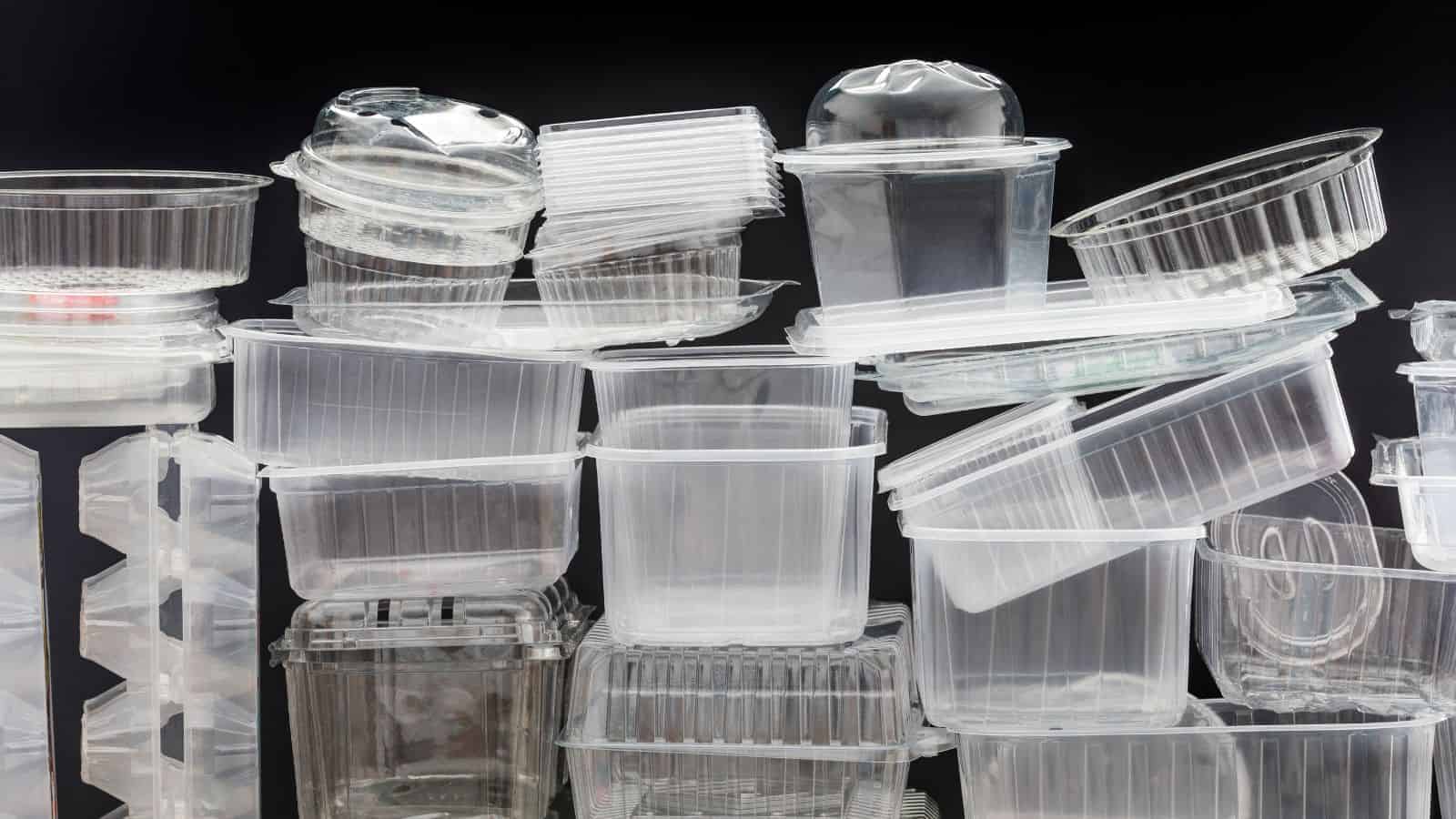
Leaving containers of food or drinks uncovered on the countertop exposes them to airborne contaminants like dust, insects, and even pet hair. Although these might not cause you much harm (besides the gross factor), you will also introduce unwanted bacteria. Always transfer any leftovers to airtight containers or cover them with plastic wrap before storing them in the fridge.
Sponges and Dishcloths
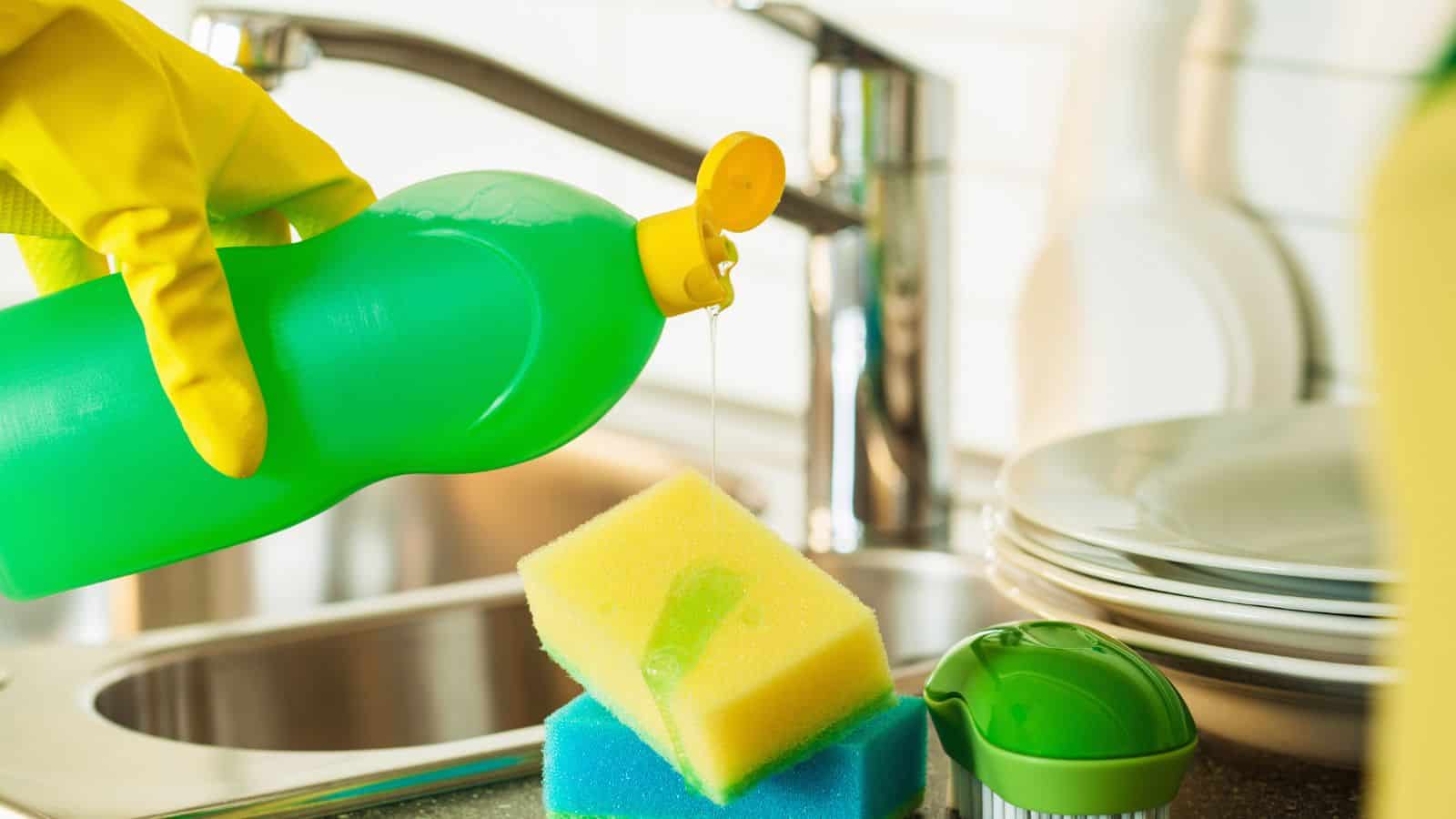
During dishwashing and surface cleaning, these cleaning tools are constantly exposed to food particles, bacteria, and moisture. Leaving them damp always encourages bacterial growth, so the countertop food-prep area is not an appropriate place for them. Instead, rinse sponges and dishcloths thoroughly after use and hang them to dry in a well-ventilated area. Oh, and replace them regularly.
Cleaning Supplies
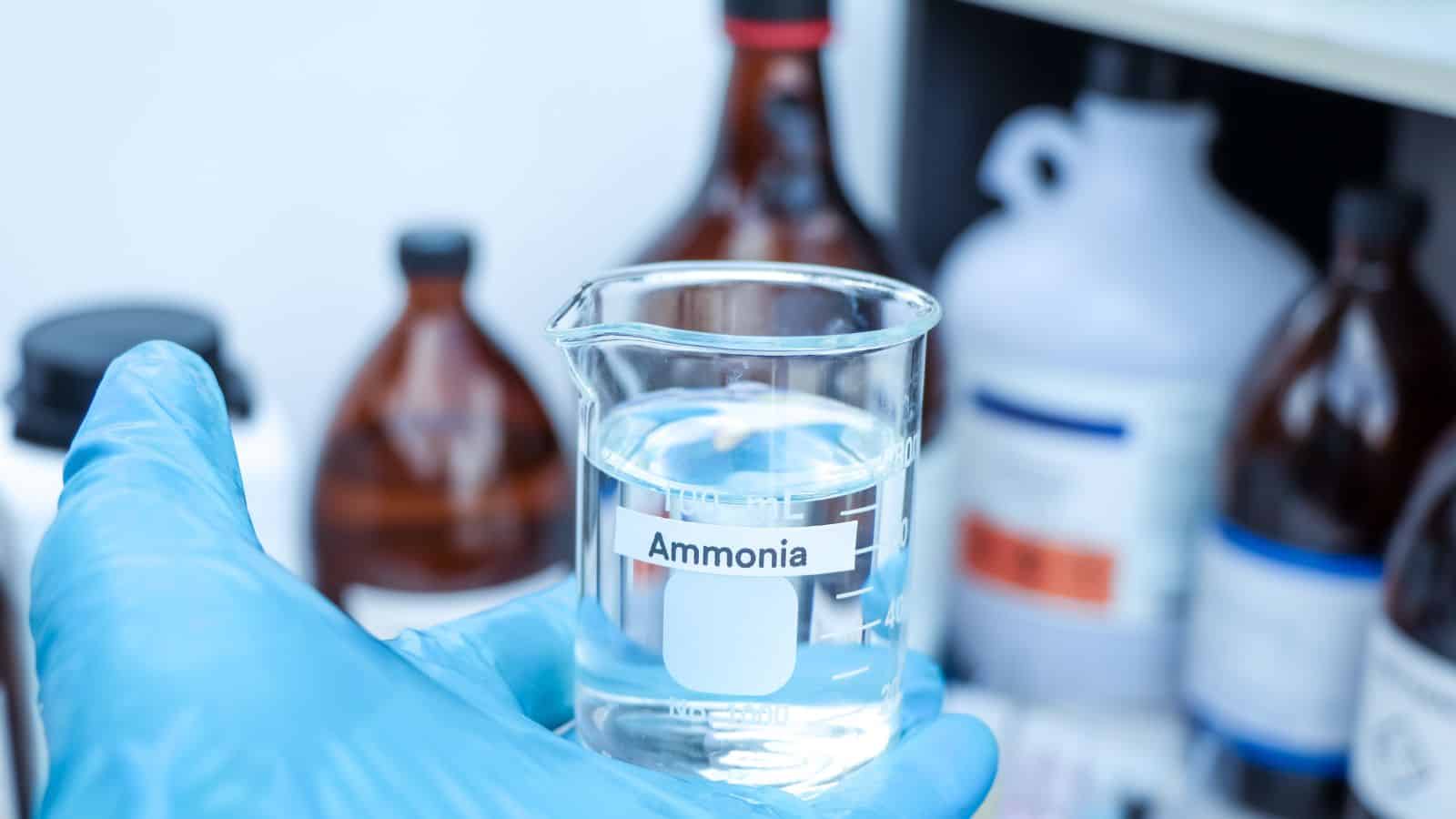
It’s not bacteria we need to worry about here, but toxic or harmful chemicals. Don’t keep cleaning products on the counter, no matter how convenient, as they can easily spill, leak, or be accidentally ingested, especially by children or pets. The harshest chemicals (like bleach, ammonia, and oven cleaners) should be stored in a locked cabinet well away from food.
Coffee Filters and Grounds
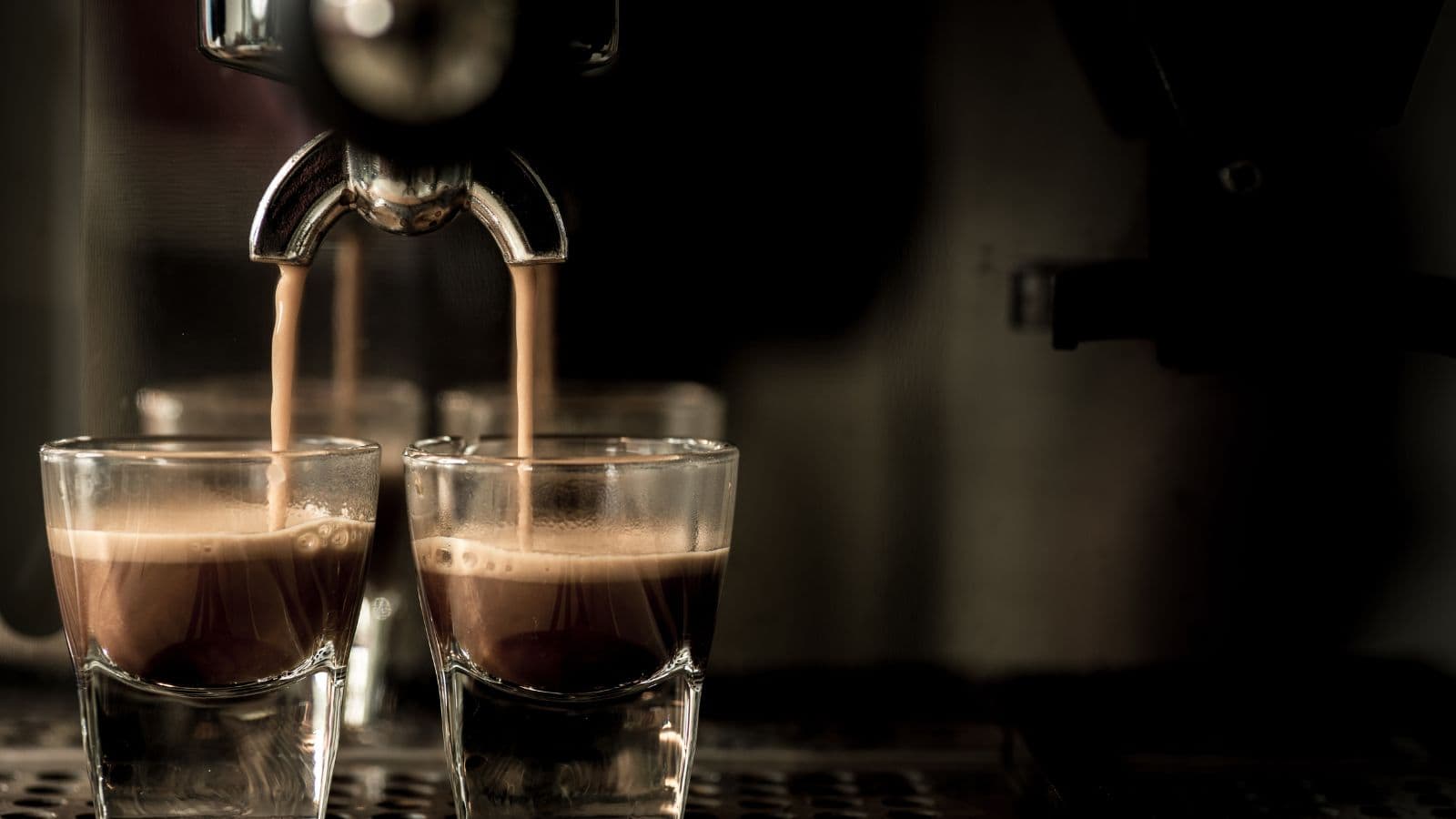
Homes & Gardens states that used coffee filters and grounds attract flies and gnats, creating a nuisance in your kitchen. They are also common causes of countertop staining, which can be nearly impossible to remove. After brewing your coffee, dispose of them in the compost or trash. If you plan on composting them later, keep them in a sealed container at room temperature until you do.
Used Cutlery and Utensils
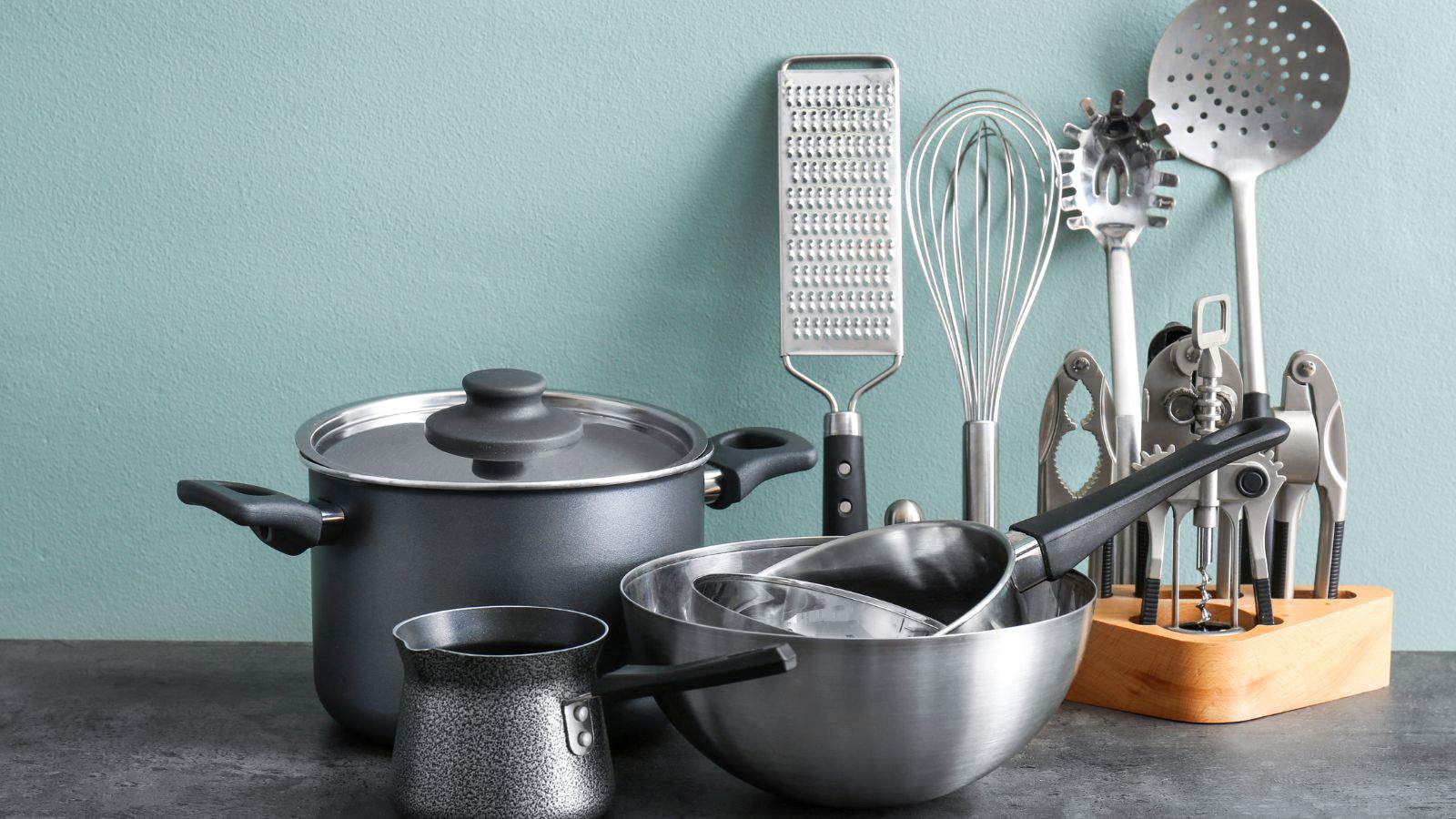
As with dirty dishes, used cutlery and utensils lying around on the countertop are unhygienic and create unnecessary clutter. After using them, wash them promptly with hot, soapy water or load them into the dishwasher. This prevents bacterial growth and makes cleaning easier, as food tends to become dry and difficult to remove when left exposed to the air.
Ripe Fruits and Vegetables
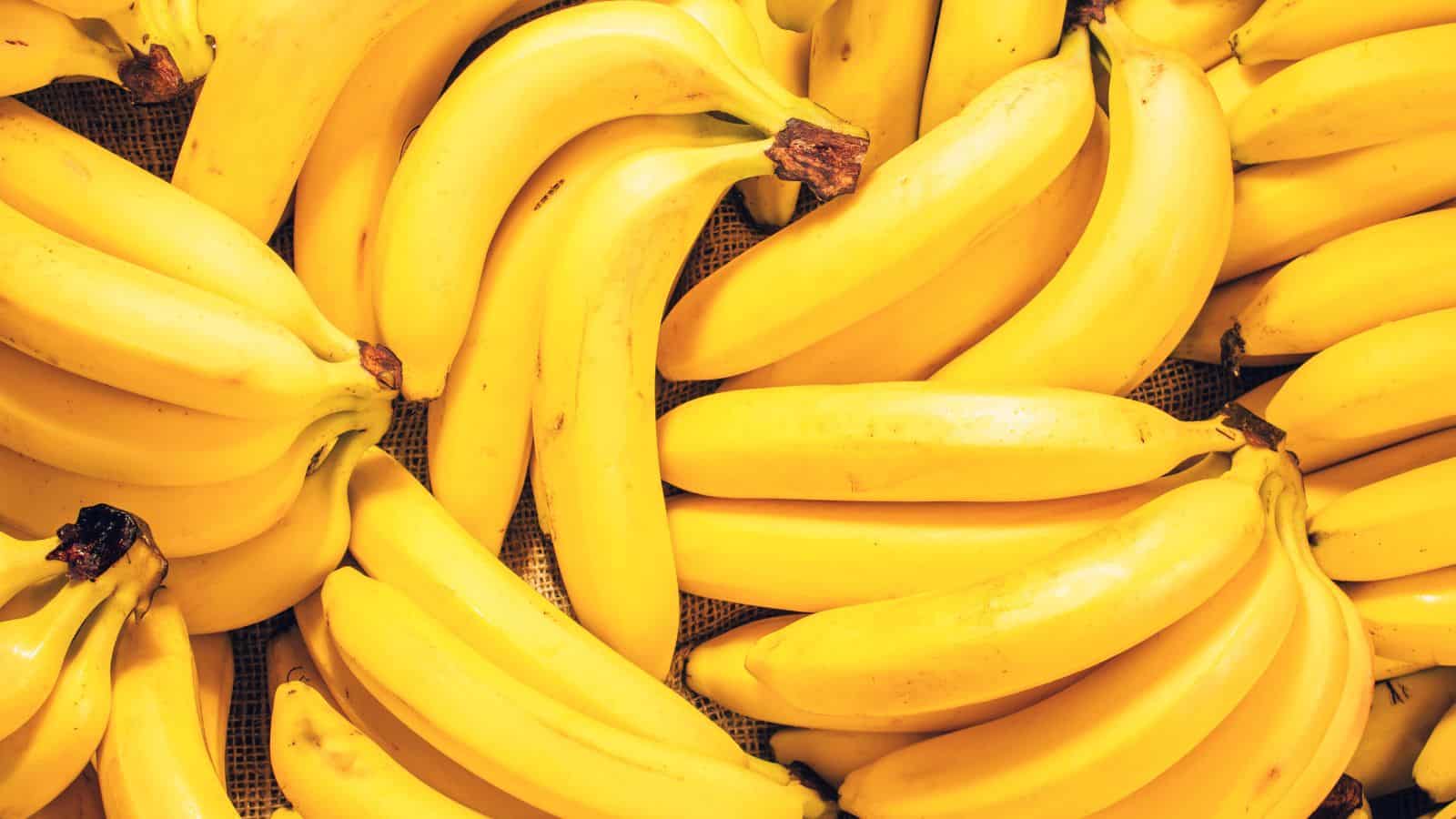
Some fruits and vegetables, like bananas and avocados, benefit from being stored at room temperature to ripen, but others spoil quickly and are better kept refrigerated. Ethylene gas emitted by certain ripe fruits can also accelerate the ripening process for nearby produce, leading to further spoilage. So, even fruits that need to ripen should be kept separately.
Small Appliances
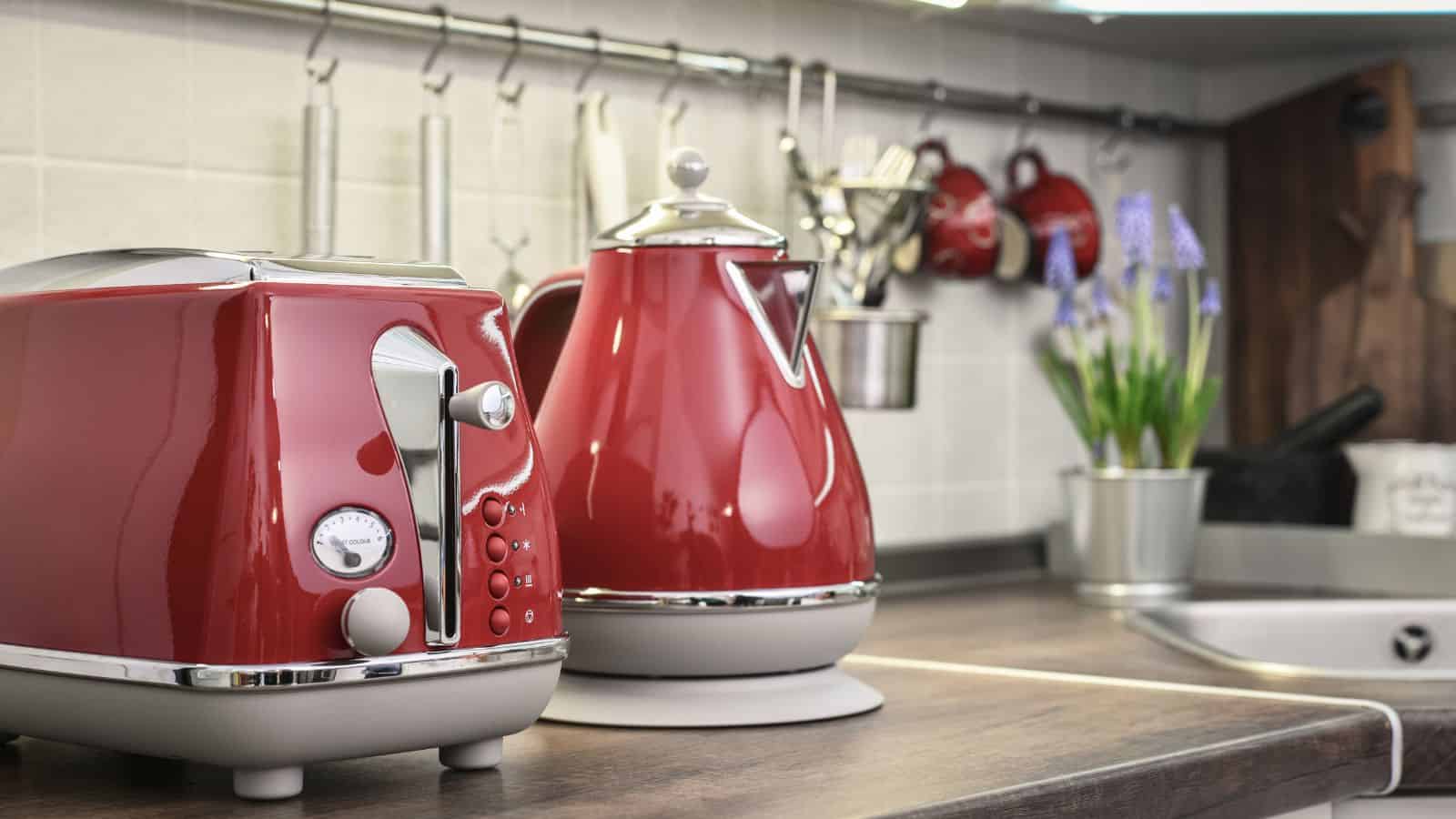
While keeping your toaster or blender readily available might seem convenient, it can make cleaning your countertop difficult and provide additional surfaces for bacteria, dust, and crumbs to hide. Unless you use them very regularly, clean small appliances thoroughly after use and store them in a cupboard. This will also stop them from getting unnecessarily dusty and dirty.
Trash Bags
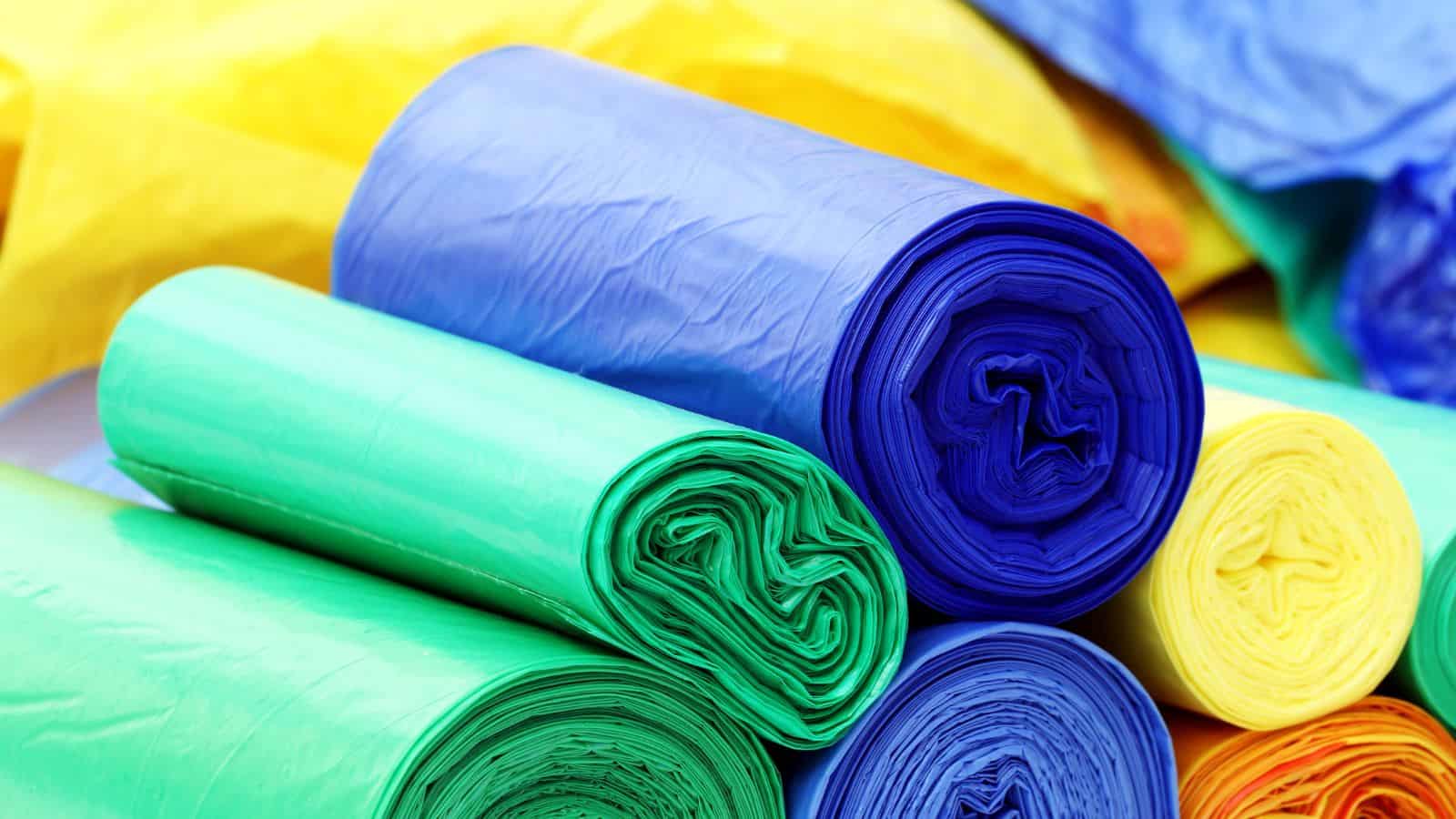
Any trash, even if well-contained, has the potential to spread bacteria and mold. Never place any used trash bag or recycling bin on your countertop—it’s unhygienic and may contaminate any food you later prepare there. Although regularly disposing of trash is a good idea, we suggest immediately placing tied bags in an outdoor garbage can with a secure lid, away from direct sunlight.
Cookbooks
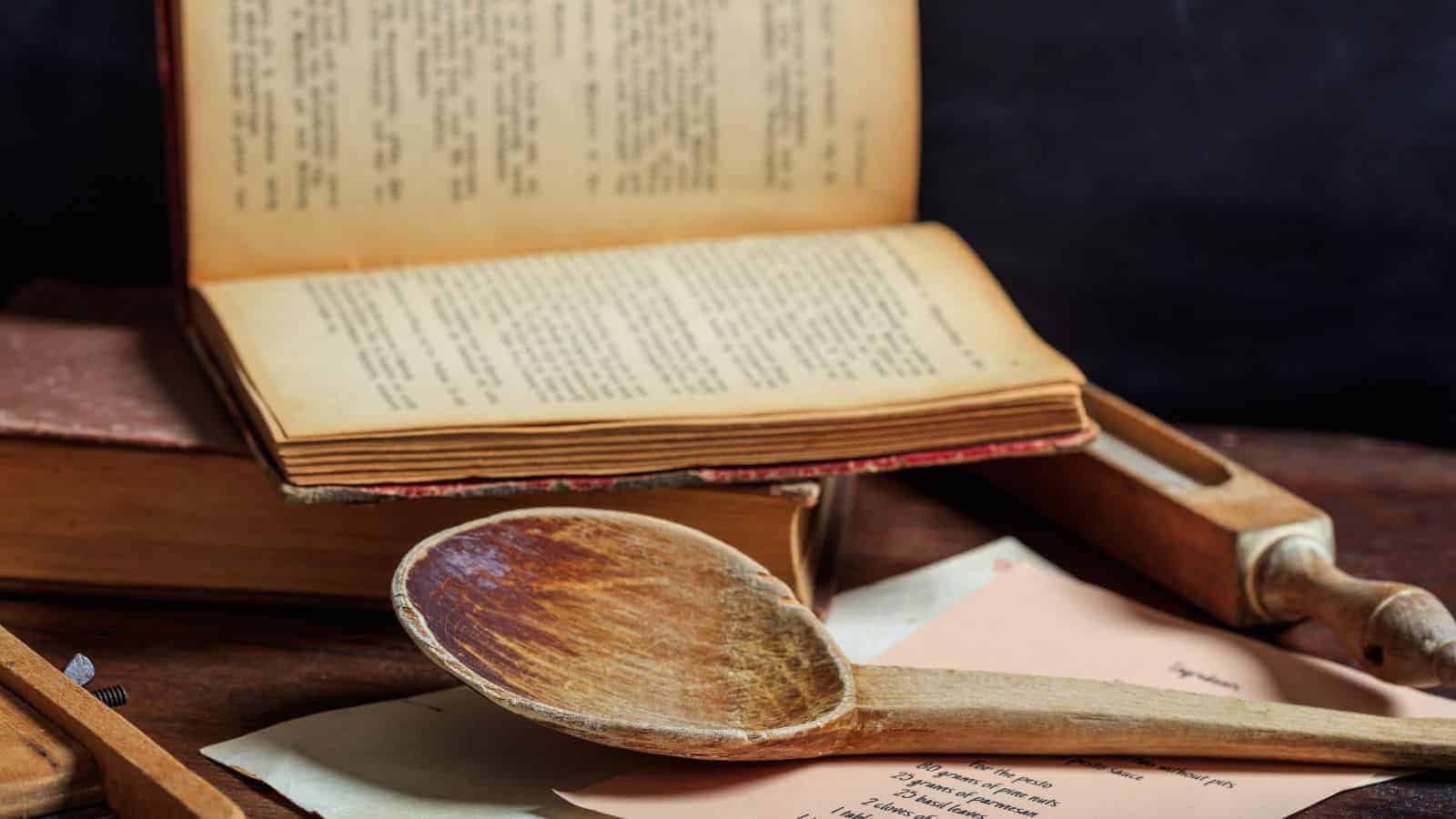
Your countertop is no place for non-waterproof recipe books, even when they’re in use. The Spruce warns that the paper pages can easily become irreversibly stained or marked with grease, making them sticky and more difficult to read. Instead, invest in an elevated cookbook holder for when you’re following a recipe, and store books in a clean cupboard when not in use.
Pet Bowls
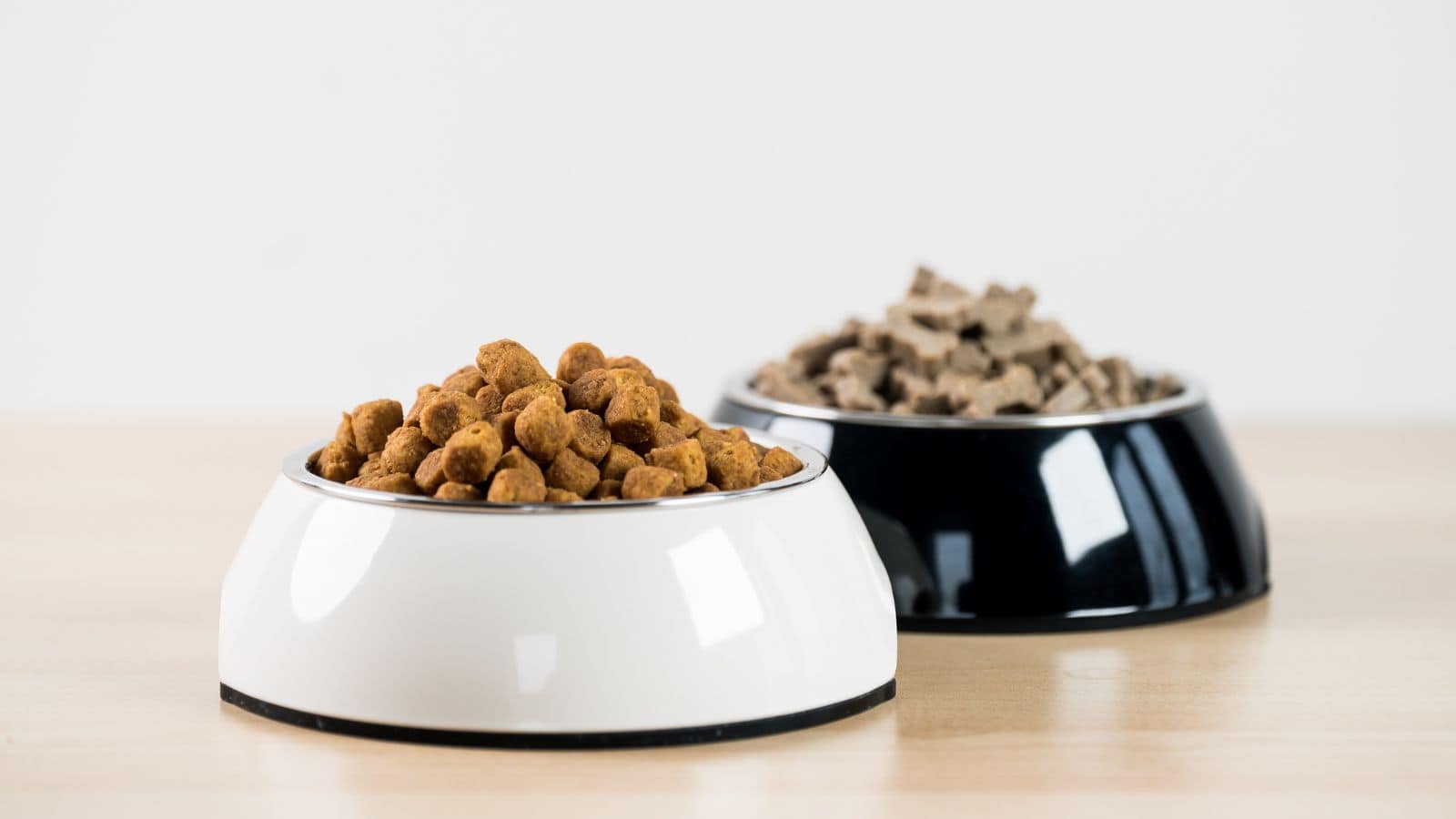
It’s unhygienic to keep your pet’s food and water bowls on the countertop, even briefly. Cats’ and dogs’ mouths contain a lot of bacteria, which can be transferred to your food prep surfaces. We recommend keeping them on the floor. This allows your pet to access them easily without walking on the countertop or jumping up, which can also spread bacteria around.
Personal Care Items
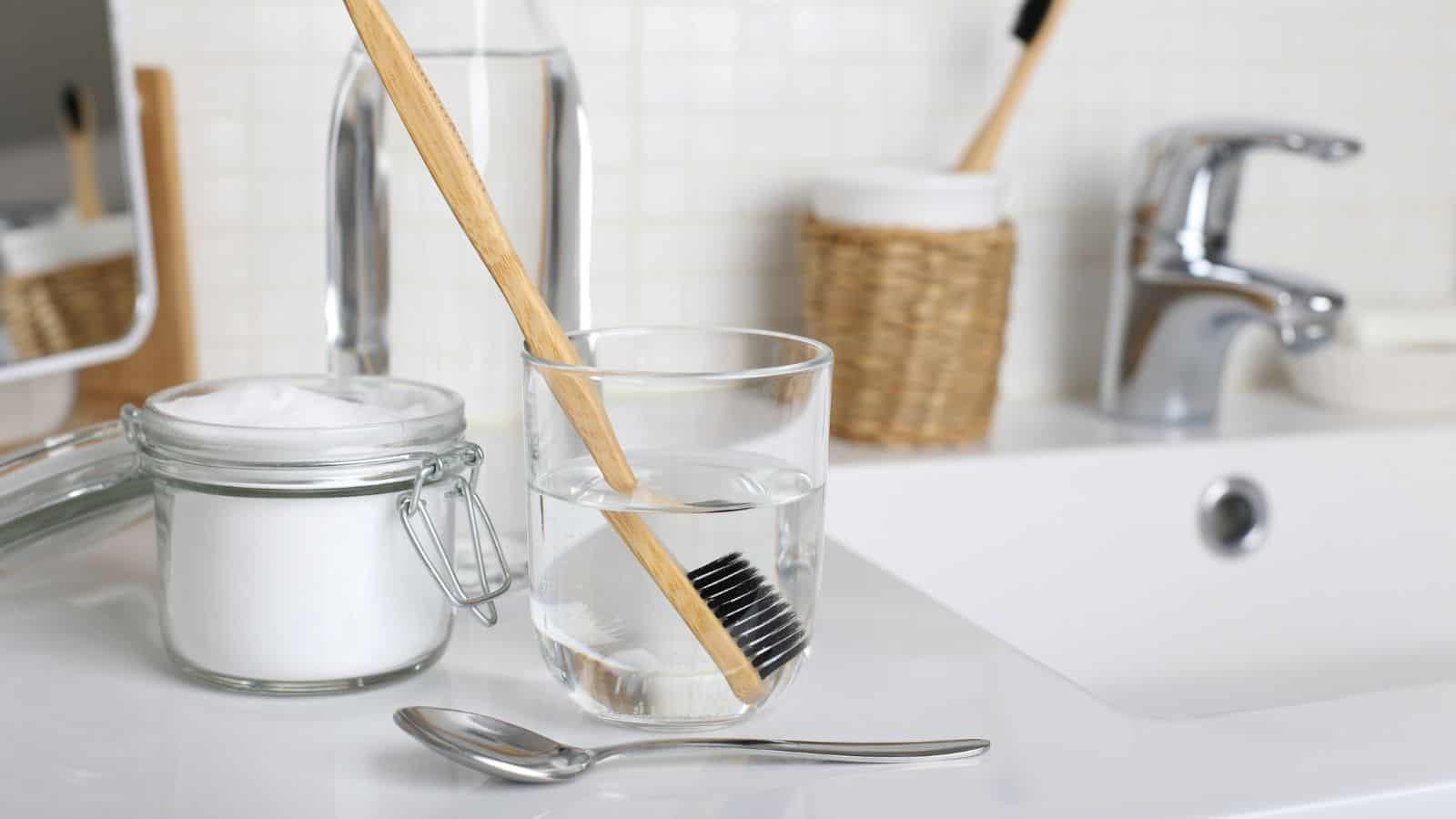
Leaving toothbrushes, cosmetics, and other personal care items on the countertop exposes them to dust, food particles, spills, and airborne bacteria. Depending on when and how they were previously handled, they can also spread bacteria on your countertop. Store toothbrushes in a covered holder elsewhere, and keep cosmetics and toiletries in bathroom drawers or cabinets.
Houseplants

Houseplants provide a delightful splash of greenery to your home but don’t belong on food prep surfaces. Many harbor insects, mold, and soil bacteria and require a moist environment that allows other bacteria to grow easily. It’s best to place them elsewhere, like on a sunny windowsill or kitchen shelf, or consider placing them in alternative rooms.
Cutting Boards
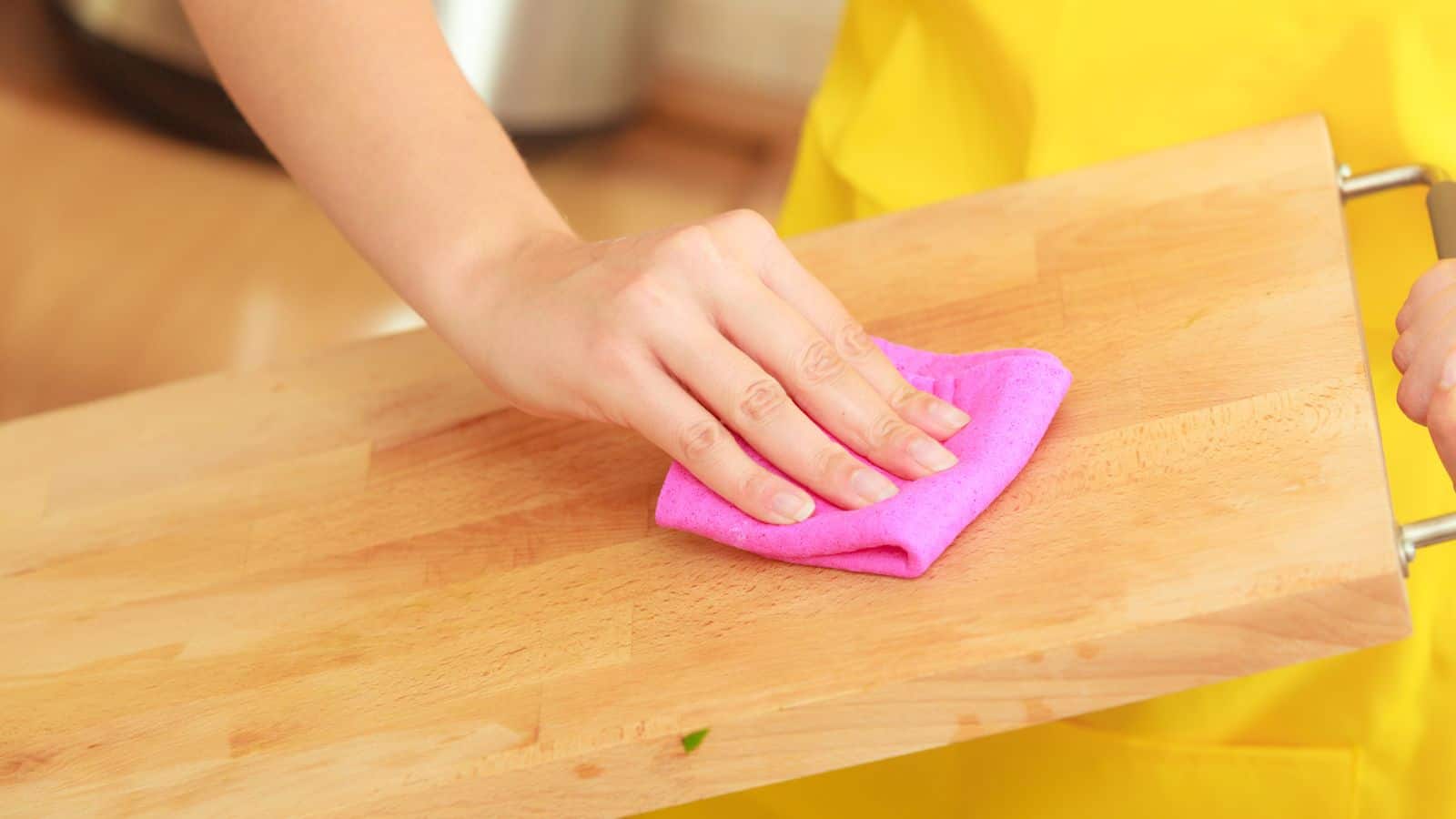
According to Eat Right, cutting boards can harbor bacteria and mold, especially if they are wooden and have many cuts and nicks on their surfaces. You should clean them immediately after use to prevent further buildup, and they shouldn’t be left on the countertop, even when they are clean. They need to be dry and safe from dust, so store them in a cupboard on their sides.
Hot Dishes
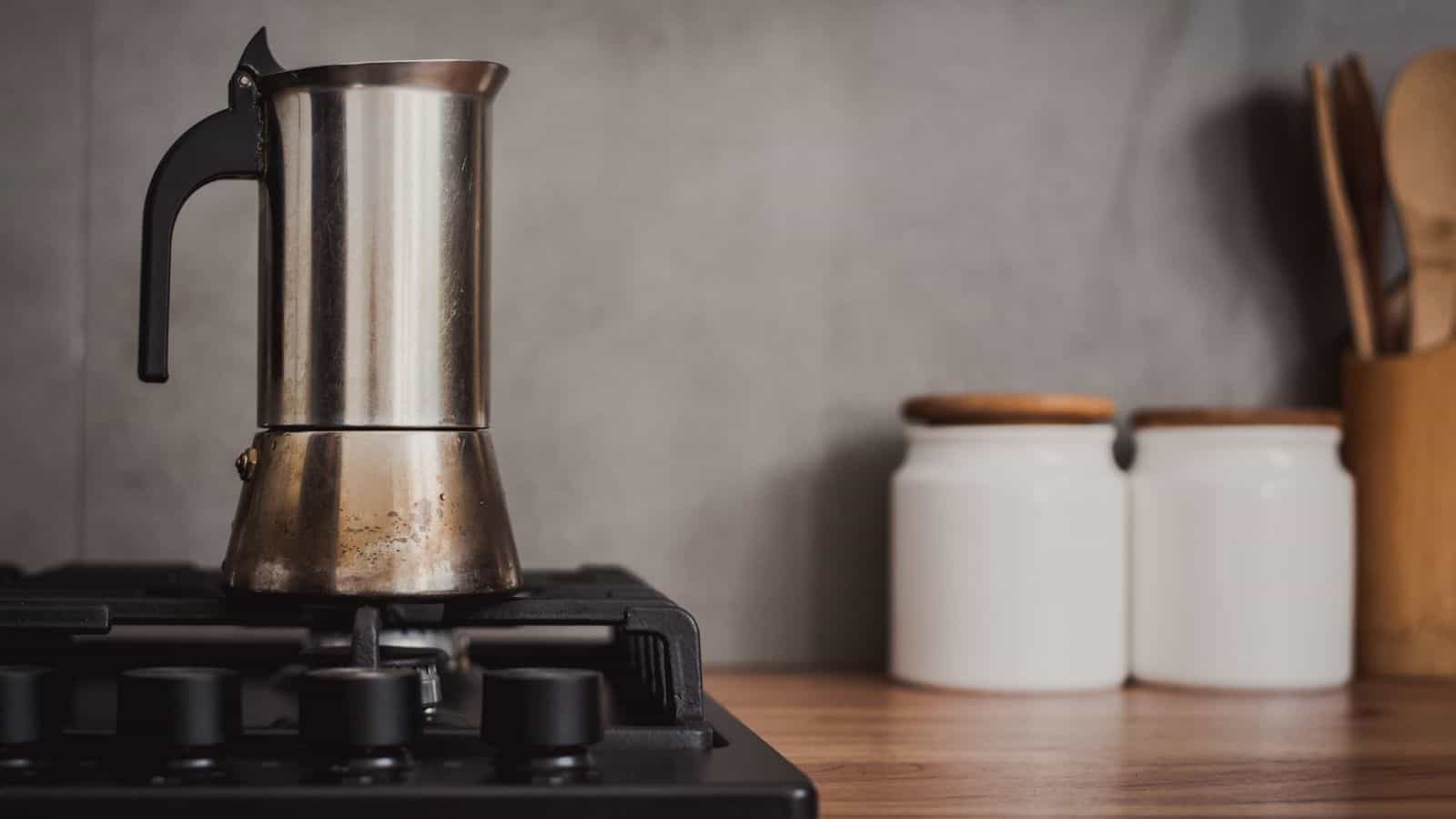
Most countertops will burn or melt if you place extremely hot pots and pans on them for extended periods, especially if they’re made of granite, quartz, or laminate. To prevent cracks and scorch marks, invest in a trivet or thick cloth pad, or keep hot dishes on heat-proof surfaces. Take care not to burn yourself, too!
Decorative Items

Decorative items don’t belong in food preparation areas because they provide extra surfaces for bacteria and dust to hide and only serve to clutter up an area that is predominantly utilitarian. Place ornaments, photos, and other décor in other rooms or on a separate kitchen shelf, leaving your countertops clean and free for hygienically preparing food.
Up Next: 17 Places in the U.S. Where Even Truck Drivers Won’t Stop
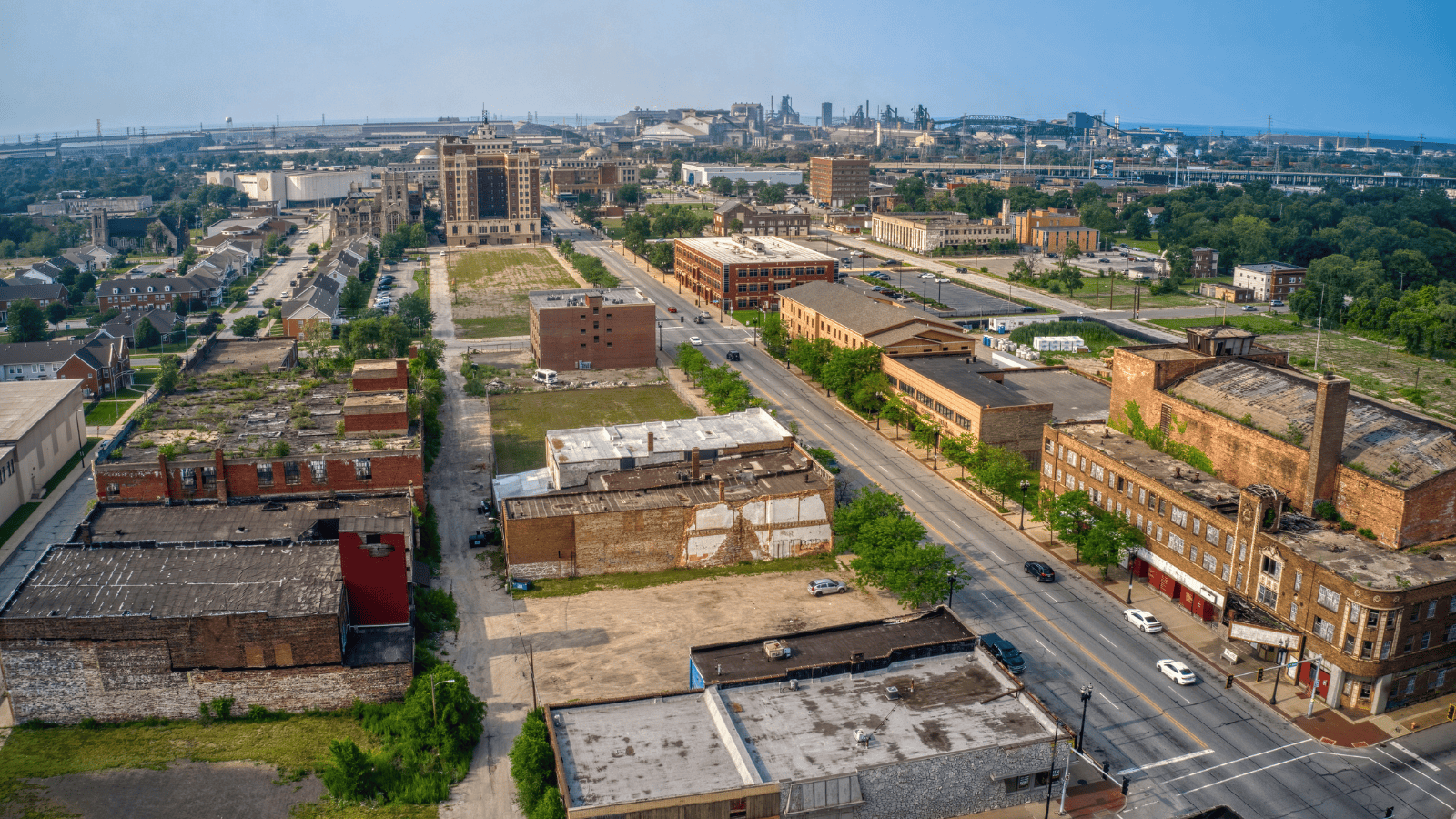
Truck drivers tend to be hardy souls—well-seasoned travelers who aren’t often afraid to rest up or refuel in risky locations. However, there are certain U.S. locations that even the most road-weary trucker refuses to stop at for fear of criminal activity or natural dangers. Here are 17 such locations that even experienced truck drivers approach with trepidation (or not at all).
17 PLACES IN THE U.S. WHERE EVEN TRUCK DRIVERS WON’T STOP
17 Things Guests Actually Notice Right Away About Your House

Inviting people into your home is a big deal. You may be very house-proud or house-conscious, and if you are either, you’ll likely get anxious about hosting. If this sounds like you, stop worrying and focus on the following 17 things that guests actually notice right away about your house.
17 THINGS GUESTS ACTUALLY NOTICE RIGHT AWAY ABOUT YOUR HOUSE
The 17 Unhappiest States in America

The US has hit an all-time low position in the World Happiness Index, tumbling to 23rd in 2024. However, it’s important to remember that location is an important factor; many US states are very happy, unlike the following 17 US states that appear to be the most unhappy.
